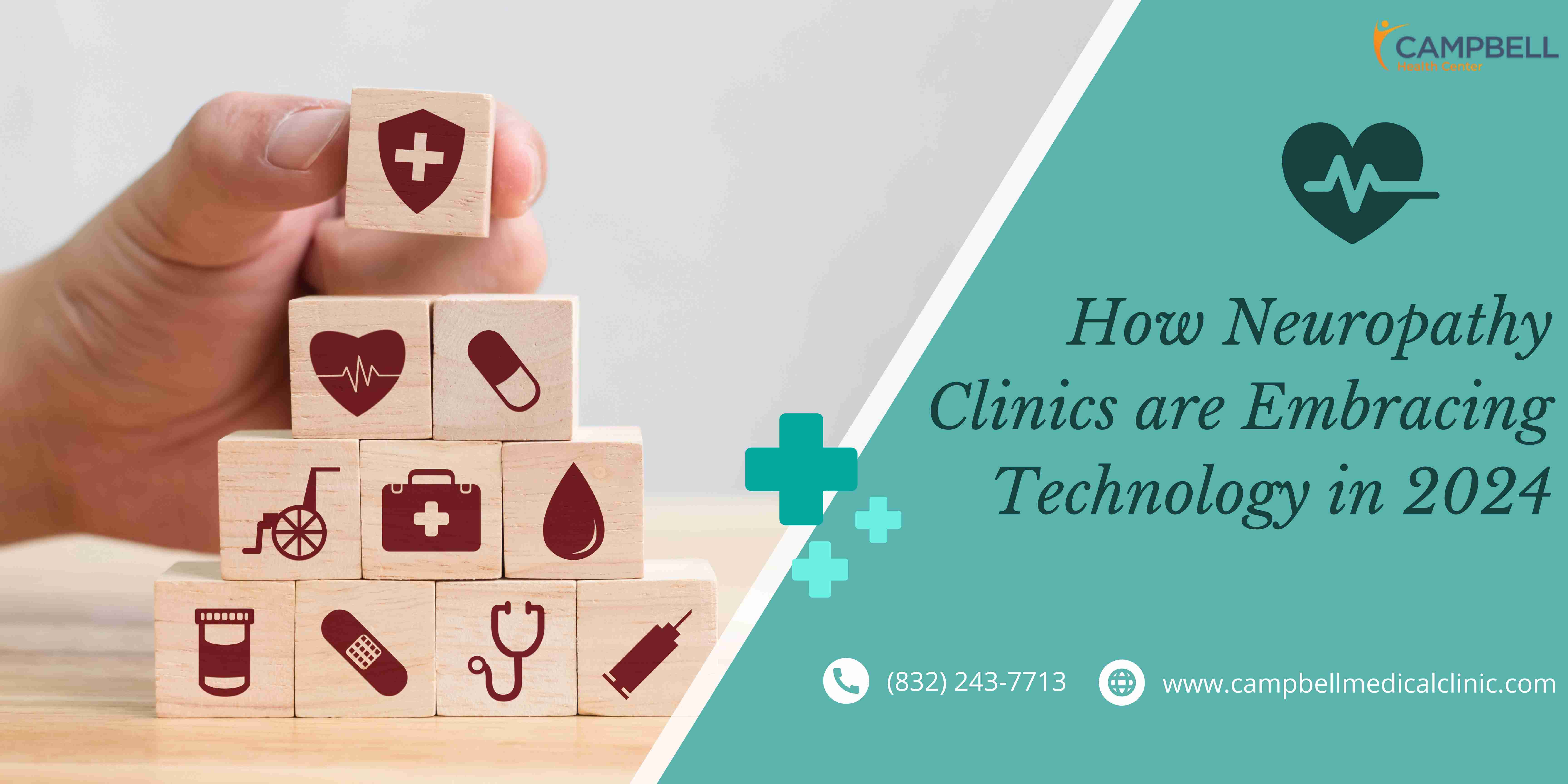How Neuropathy Clinics are Embracing Technology in 2024
In 2024, neuropathy clinics are on the cusp of a revolutionary transformation, leveraging cutting-edge technology to enhance patient care, improve diagnostic accuracy, and offer innovative treatment options. As neuropathy—a condition characterized by nerve damage that leads to pain, numbness, and weakness—continues to affect millions, clinics are increasingly turning to technological advancements to provide more effective and personalized care. Among the forefront of these innovations are clinics like Campbell Health Center in Houston, which are incorporating regenerative medicine and other state-of-the-art techniques to combat this debilitating condition.
Advanced Diagnostic Tools
One of the most significant technological advancements in neuropathy clinic houston is the use of advanced diagnostic tools. Traditional diagnostic methods often involve a combination of patient history, physical examinations, and basic nerve conduction studies. While these methods remain essential, they are now being supplemented with more sophisticated technologies.
For instance, high-resolution ultrasound and magnetic resonance neurography (MRN) are becoming standard in many clinics. These imaging technologies allow for a detailed view of nerve structures, enabling clinicians to pinpoint areas of nerve damage with unprecedented accuracy. This precision not only aids in diagnosis but also in monitoring the progression of the disease and the effectiveness of treatments.
Regenerative Medicine: A Game Changer
Regenerative medicine is a rapidly evolving field that holds immense promise for neuropathy patients. At the forefront of this innovation is Campbell Health Center in Houston, which has been a pioneer in integrating regenerative medicine into its neuropathy treatment protocols.
Regenerative Medicine Houston focuses on repairing and regenerating damaged tissues and nerves using the body's natural healing processes. Techniques such as stem cell therapy, platelet-rich plasma (PRP) therapy, and exosome therapy are gaining traction. These therapies work by stimulating the body's repair mechanisms, promoting the regeneration of damaged nerve tissues, and potentially reversing the effects of neuropathy.
Stem cell therapy, for example, involves the use of undifferentiated cells that have the potential to develop into various cell types. When introduced into the body, these cells can differentiate into nerve cells, aiding in the repair of damaged nerves. Similarly, PRP therapy utilizes the patient's blood, which is processed to concentrate platelets and growth factors that are then injected into the affected areas to promote healing and reduce inflammation.
Telemedicine and Remote Monitoring
The advent of telemedicine has revolutionized healthcare delivery, and neuropathy clinic houston are no exception. Telemedicine allows patients to consult with specialists from the comfort of their homes, eliminating the need for frequent in-person visits. This is particularly beneficial for neuropathy patients, many of whom may have mobility issues.
Clinics are also adopting remote monitoring technologies to track patients' progress in real-time. Wearable devices and mobile health apps can monitor symptoms, medication adherence, and lifestyle factors, providing clinicians with valuable data to tailor treatment plans. These tools not only enhance patient engagement but also enable proactive management of the condition, potentially preventing complications.
Personalized Treatment Plans
Personalization is a key trend in modern medicine, and neuropathy treatment is no different. Advances in genetic testing and biomarker analysis are enabling clinicians to develop personalized treatment plans based on a patient’s unique genetic makeup and disease profile.
For example, genetic tests can identify specific mutations that may be contributing to neuropathy, allowing for targeted therapies that address the root cause of the condition. Biomarker analysis, on the other hand, can help in monitoring the effectiveness of treatments and making necessary adjustments to optimize outcomes.
Integrative Approaches
Neuropathy clinics are increasingly adopting integrative approaches that combine traditional medical treatments with complementary therapies. Techniques such as acupuncture, physical therapy, and nutritional counseling are being used alongside conventional treatments to provide holistic care.
Physical therapy, for instance, helps improve strength, balance, and mobility, reducing the impact of neuropathy symptoms on daily life. Nutritional counseling can address deficiencies that may exacerbate nerve damage, while acupuncture has been shown to alleviate pain and improve nerve function in some patients.
Visit:-https://campbellmedicalclinic.com/
